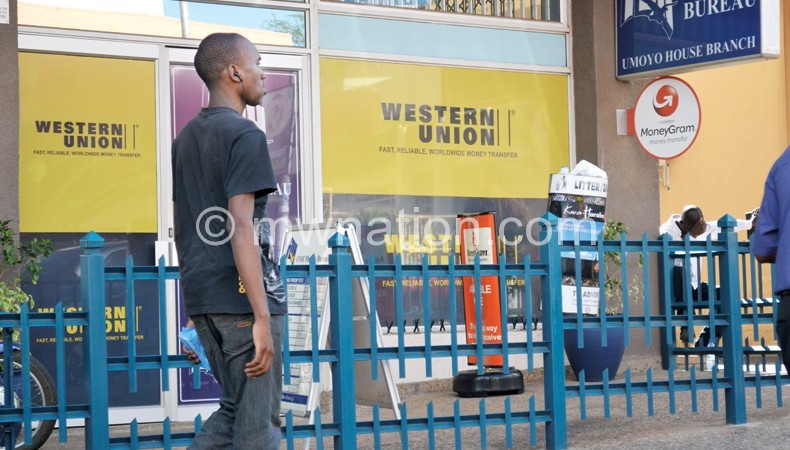‘Super tax’ on remittances prohibitive—Economist
A local economic commentator has described as prohibitive, at 12 percent compared to the global average of 7.8 percent, the cost of remitting funds to a country such as Malawi, arguing it is detrimental development.
A report by the London-based Overseas Development Institute (ODI) released on Wednesday said Malawians and their colleagues in the sub-Saharan African countries face the highest remittance fees globally, paying what is called “super tax” to send money home at a cost that is almost double the global average.

The ODI report has indicated that the average cost to transfer $200 (about K83 400, at the current exchange rate) to Malawi, for example, is about 12 percent, compared with a global average of 7.8 percent.
Economic commentator, Chikavu Nyirenda, told Business News on Thursday that the charge is way too high and could limit future remittances.
“With the current fees, people [in the diaspora] might not be able to send as much as they could and this could lessen the amount that they send. Remittances have proven to have a quite significant impact in the development of the country and a source of foreign exchange,” he said.
Nyirenda cited countries in Asia such Malaysia, China, India and Singapore that have tremendously developed due to remittances.
ODI in the report, ‘Lost in intermediation, branding the higher fees a super tax’ said reducing remittance charges to global average levels would generate $1.8 billion, enough to put 14 million children through primary school, or provide clean water to 21 million people in sub-Saharan Africa.
The institute cited two money transfer operators—Western Union and MoneyGram—which accounted for two thirds of remittance transfers to Africa.
Western Union is quoted as saying that the average global revenue it earned from transferring money was five to six percent of the amount sent and that their pricing varies between countries depending on a number of factors such as consumer protection costs, local remittance taxes and other market efficiencies.
A spokesman for MoneyGram is quoted as faulting the ODI figures, saying someone sending £200 from the UK to Africa would pay a charge of 5.1 percent, including foreign exchange fees, against a global average of 4.9 percent.
In 2013, remittances to Africa were valued at $32 billion or around two percent of gross domestic product (GDP), according to ODI, and in 2016, they are projected to rise to more than $41 billion.





